All Stories
-
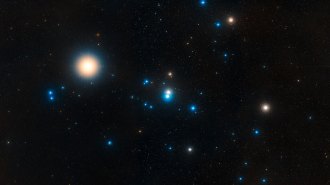 Astronomy
AstronomyThe star cluster closest to Earth is in its death throes
Gaia spacecraft observations of stars’ motion within and fleeing the cluster suggest the 680-million-year-old Hyades has only 30 million years left.
By Ken Croswell -
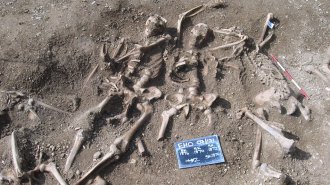 Archaeology
ArchaeologyAncient DNA suggests Vikings may have been plagued by smallpox
Viral genetic material from human remains provides direct evidence that smallpox infected people dating back to the year 603.
-
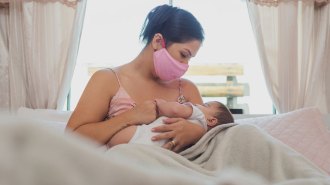 Health & Medicine
Health & MedicineMasks help new moms with COVID-19 safely breastfeed their babies
A study reports newborns could be held and breastfed safely when moms with COVID-19 wore masks and cleaned their hands.
-
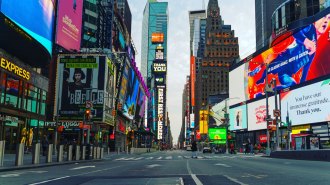 Earth
EarthCOVID-19 lockdowns dramatically reduced seismic noise from humans
Human-caused seismic activity was reduced by as much as 50 percent around the globe during lockdowns as a result of the coronavirus pandemic.
-
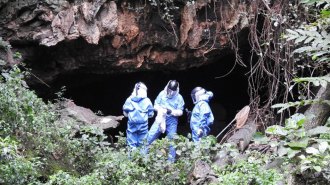 Health & Medicine
Health & MedicineTo prevent the next pandemic, we might need to cut down fewer trees
Investing in halting deforestation and limiting the wildlife trade could be a cost-effective way to reduce the risk of pandemics, a new analysis finds.
-
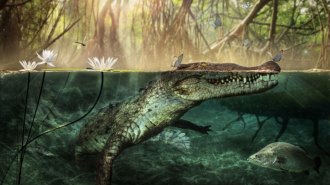 Paleontology
PaleontologyAn ancient skull hints crocodiles swam from Africa to the Americas
A group of crocs, or at least one pregnant female, may have made a transatlantic journey millions of years ago to colonize new land.
-
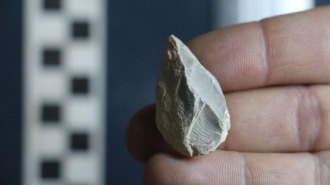 Archaeology
ArchaeologyStone artifacts hint that humans reached the Americas surprisingly early
Finds uncovered in a Mexican cave suggest North America may have had human inhabitants more than 30,000 years ago — way before archaeologists thought.
-
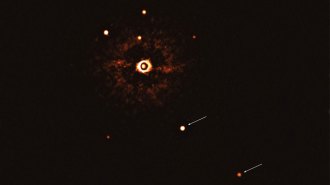 Astronomy
AstronomyThis is the first picture of a sunlike star with multiple exoplanets
A first family portrait reveals a weird cousin of the solar system: a star about the mass of the sun orbited — distantly — by two massive gas giants.
-
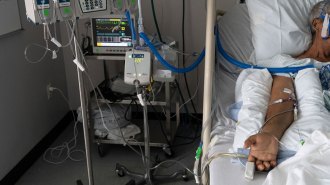 Health & Medicine
Health & MedicineA blood test may show which COVID-19 patients steroids will help — or harm
An inflammation marker was a good indicator of which patients had lower or higher risks of dying or needing a ventilator when given steroids.
-
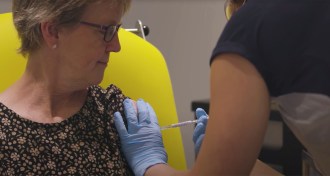 Health & Medicine
Health & MedicineCOVID-19 vaccines by Oxford, CanSino and Pfizer all trigger immune responses
In three clinical trials, vaccine candidates appear safe and induce the production of antibodies and other immune cell responses against the coronavirus.
-
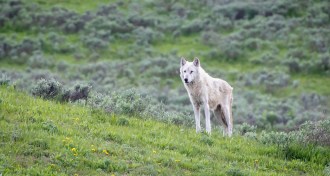 Animals
AnimalsHow Yellowstone wolves got their own Ancestry.com page
Since the wolves’ reintroduction to the park, 25 years of devoted watching has chronicled bold moves, big fights and lots of puppies.
By Susan Milius -
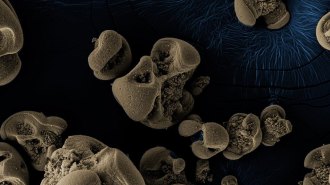 Microbes
MicrobesScientists stumbled across the first known manganese-fueled bacteria
A jar left soaking in an office sink helped scientists answer a century-old question of whether bacteria can use manganese for energy.